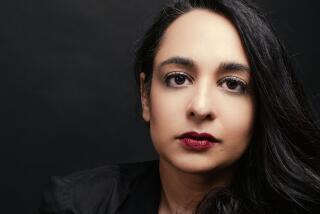Afghan Ambiguities
- Share via
Thanks for your kind notice of my novel, “Kabul,” reviewed by Debra Denker on May 8. I’m glad The Times noted that Denker also is writing a novel about Afghanistan, “based on her experiences as a National Geographic correspondent.” Although her review was on the whole favorable, it seems both her praise and blame derive from the rather romantic notion that Afghanistan is a kind of cultural game preserve.
For 13 years, I have been deeply involved with the people from whom my fictional characters are drawn. They will be amused to hear they are not “believable” Afghans because they speak colloquial English. Perhaps Denker meant they are not typical Afghans. Yes. Just so. The family Anwari may have as much in common with relatively affluent, Western-educated political movers in other developing nations as they do with their own pivotal decisions (and betrayals) in Kabul, the capital city as well as the book. But to insist that only traditional stereotypes are “truly” Afghan is erroneous and offensive. The siblings I portray are indeed “psychologically tormented”: With the exception of Tor, the naughty younger son, they feel enormous pressure to act for change, for progress, in spite of risks and ambiguities. Tarring them with the empty word yuppies is naive, malicious, or both.
That Denker (and her editors) misspelled my name throughout is a smaller but irritating point.
M. E. HIRSH
Boston, Mass.
More to Read
Sign up for our Book Club newsletter
Get the latest news, events and more from the Los Angeles Times Book Club, and help us get L.A. reading and talking.
You may occasionally receive promotional content from the Los Angeles Times.






